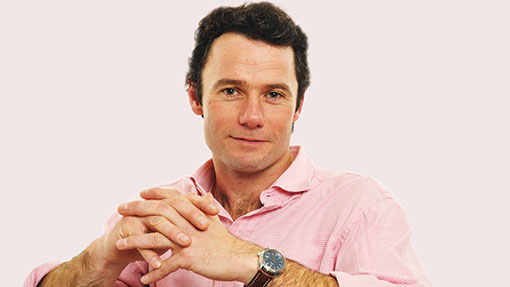Weather super computer: Farmers have skills technology can’t replace

A new “super computer” at the Met Office will forecast the weather, hour by hour, up to six days into the future. Accurate to 300m, this digital Michael Fish could exponentially improve the precision of precision farming.
No longer will we need to look over the hedge to see if the neighbour’s cows are lying down or ask Granny if her arthritic joints are aching to decide if tomorrow will be a good day to spray.
Regardless of varietal choice, modern machinery, fungicide programmes, diligence and graft, every arable farmer knows the most overwhelming influence on their wheat yield sits firmly in the lap of the weather Gods. Fresh from enjoying the UK’s most bountiful wheat harvest in 20 years, we were reminded how relatively insignificant farmers’ influence on yield remains.
See also: ‘Supercomputer’ set to improve weather forecasts for farmers
This investment in accurate forecasting of our maverick and temperamental weather patterns could be a catalyst for the step-change required for the UK farming and food supply industry to satisfy increasing world demand.
By helping farmers make more informed decisions, it will reduce cost but importantly improve the efficacy of fertilizer, insecticides and fungicides. More precise analysis of the moisture, wind and temperature will influence when we plant. It will also help us more accurately analyse the speed with which plants and grasses will accelerate through growth stages or how quickly nutrients will be absorbed into the leaf. No doubt there will be boundless other advantages for our industry.
But I can’t be alone in feeling slightly nostalgic faced with the redundancy of yet another farmer’s lifeskill that will be superceded by technology.
The farmer’s “sixth sense” is an intuition which, regardless of scientific analysis and data, helps him or her make decisions based on years of knowledge and an inner belief.
It may be forecasting that the weather is going to change, or knowing that a very specific area of a field may need more a bit more lime or a deeper-rooted crop grown in it next year to help the soil structure. All skills that we can now measure with the aid of technology.
By relying on technology to measure soil and weather, are we sanitising farming and discarding precious techniques and knowledge along the way?
I am not referring to the skill of driving a tractor in a straight line or the ability to accurately turn a sprayer on and off. It’s the seeing, smelling and touching the soil that technology cannot replicate.
Of course, mechanisation has precipitated this. Farms have got larger and it is impossible for a farmer to have the same intuitive knowledge of 3,000 acres that they had of 300. While we all want to remove risk from our business, unpredictability and uncertainty are all part of our industry’s charm. The lure of a game of cat-and-mouse between the farmer, the weather and nature keeps many farmers farming in the same way that gamblers are drawn back to a poker table.
Don’t get me wrong, I love the advances that technology has brought to our farm. Reducing fuel and more precise application of seeds, sprays and fertilizers are all progressive steps. But we must use the technology to help us make decisions, not to define them.
No matter how dry the supercomputer tells me the day’s weather is going to be, if it is a bit black over Will’s mother I won’t be going spraying.
Ian Pigott farms 700ha in Hertfordshire. The farm is a LEAF demonstration unit. Ian is also the founder of Open Farm Sunday.
What do you think about this subject? Have your say on our website forums .

